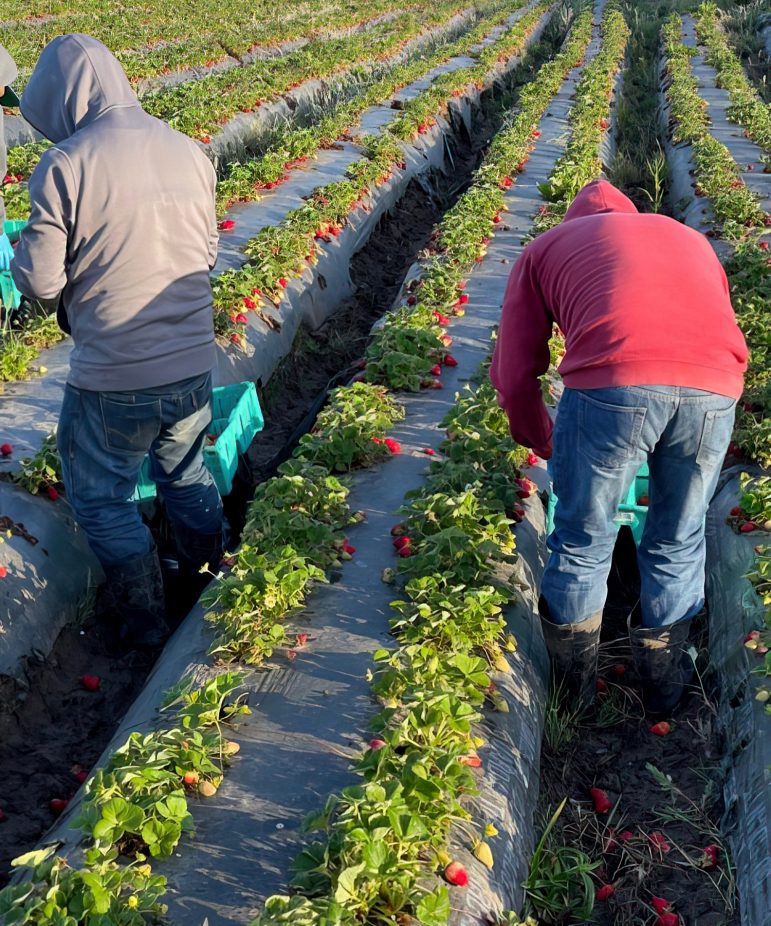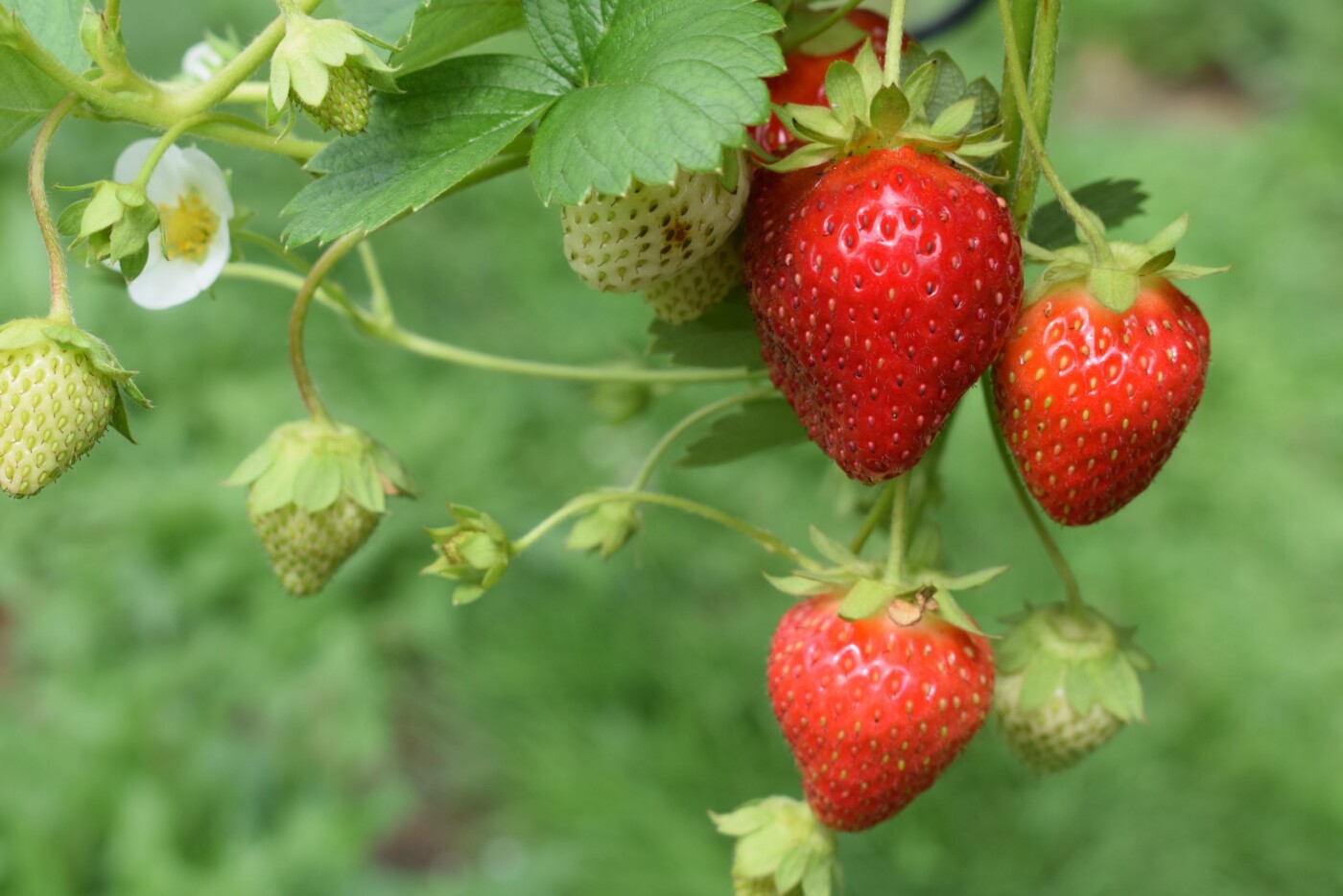After a wet autumn and warm sunny days in the first three months of this year, the 2022 strawberry crop was exceptionally promising — growing earlier and more rapidly than usual. It was a pleasant surprise for Javier Zamora, owner of JSM Organics in Watsonville.
And then the spring rains came.
Now, more than 80 percent of the crop has rotted.
“It’s a total loss for revenue that we really really had been waiting for,” Zamora said, referring to the work he and his team put in during the winter months while planting and tending the crop. “We keep borrowing money to keep up with our payroll. The first big sale that we were going to do, we lost it.”
Strawberries are typically planted in November, and the first major crop begins producing at the end of March or early April. Now the first two weeks of harvest, when the berries typically command their highest price, have been lost.
Although the damaged plants will eventually reproduce, it’s a big hit for growers.
“The very first strawberries — prices are incredibly good. Right now we can sell a box for $34-$36. But in July we’ll be selling the boxes for $16-$18 because there are too many [strawberries] available then, and there are other fruits in the market.”
Thirty minutes away in Salinas, Rigoberto Bucio, owner of Bucio Organic Farms, says 50 percent to 60 percent of his strawberry crop has been destroyed, costing him about $15,000. And it’s not just berries. Bucio said much of his latest crop of lettuce has been damaged.
“The temperature changes (with) it being cold and raining forms a white color on the lettuce, and it makes it hard to sell,” Bucio said.
Bucio, who has been farming for more than 10 years and sells most of his crops to wholesalers, said he stresses about how the rest of the seasons will turn out. He said farming is becoming more and more complicated because of the climate.

Zamora said all the farms in the area have been affected by the rains. The big conglomerates, however, have insurance policies and deeper pockets, which mitigate the impact when crops are lost.
It’s a safety net that small, family-run farms like his do not have, and the financial ups and downs experienced by growers are accompanied by a rollercoaster ride of emotions.
“People hear about farmers losing their farms but they don’t hear about much of the mental health and stress the farmers go through,” Zamora said.
That said, Zamora’s not about to walk away from his farm.
“I’m not going to give up,” he said. “I wouldn’t do anything else. It’s super beautiful to see people enjoy our vegetables that we grow.”
JSM Organics produce can be found at the Diablo Valley Farmers Market in Walnut Creek on Saturdays and the Fort Mason and Kensington farmers markets on Sundays.
